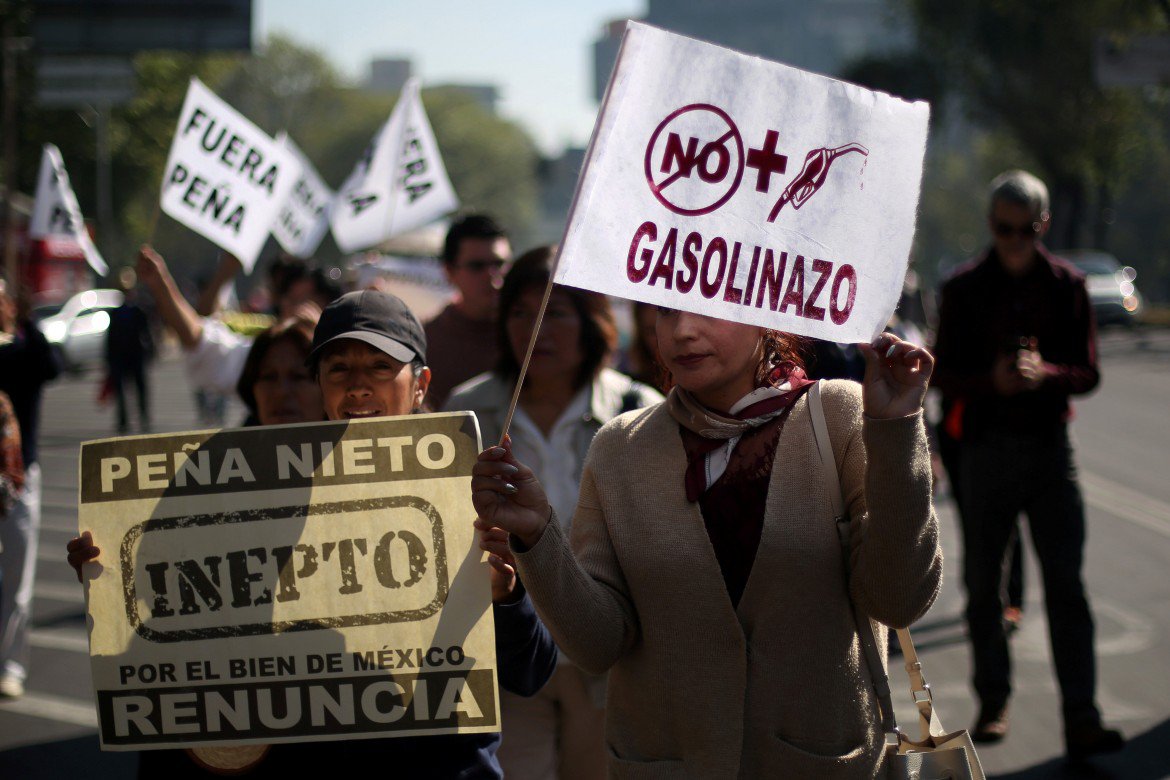Analysis
Gas price hikes fuel protests, leaving deaths and fury
President Enrique Peña Nieto’s neoliberal policies have not stopped the gas price from rising to intolerable highs.

At least three are dead and over 600 have been arrested during protests in Mexico against gasoline price increases handed down by the neoliberal President Enrique Peña Nieto.
The cartels and the people are all against Peña Nieto, whose popularity has fallen to historic lows — 26 percent, the worst approval rating of a Mexican president since 1995. The public disapproved of his management and economic policy even before he allowed Donald Trump to visit.
Unlike his progressive counterparts in Latin America, Peña Nieto enjoys excellent press, when he declares “drink Coca Cola Light daily,” he smiles with the beautiful consort of former actress Angelica Rivera and bulldozes any scandals involving him, like when his wife bought a $7 million house.
According to Amnesty International, the Mexican state depends on a public relations apparatus that works to diminish human rights crises and forcefully responds to criticism.
The same is true of the gasoline crisis. Peña Nieto has denied the evidence, urging citizens to “understand the inconvenience” and saying the measures were necessary. “Not to do so would have been worse,” he said.
Worse for whom? Certainly not the 55.3 million poor people (56.2 percent of the population), whose numbers have grown during his tenure. They will all pay dearly for a tank of gas. According to Bloomberg, Mexico, like South Africa, is among 59 fuel guzzling countries, in which gasoline expenses take up a larger percentage of annual income (3.5 percent).
Since the 2012 election campaign, Peña Nieto has continued to promise that in Mexico (the eighth oil producer in the world) there would never be a gasoline price gouge and that his energy reform, which put an end to the petrol monopoly held by the state company Pemex and opened the exploitation of hydrocarbons and electricity to the free market, would lead to a decline in tariffs.
That’s not what happened. The price of the most-used petrol in Mexico under his mandate has risen by 48 percent. Meanwhile, following looting, the gas retailer Grupo Gasolinero G500, which operates 1,800 petrol stations, announced the closure of 400 of them.
In 20 states, the looting has alternated between roadblocks and demonstrations attended by transport drivers, cabbies, students, professors, peasants, households, traders. In different parts of the country, there were clashes with the police, injuries and mass arrests. Human rights organizations have put out fresh alerts about the police and soldiers in a country that, over the last decade, has seen 30,000 enforced disappearances and over 120,000 deaths.
If the homicide statistics remain at this pace — almost 60 murders per day — Peña Nieto’s term will be the most violent since the beginning of the so-called war on drug trafficking began in 2006.
Many striking cases have highlighted how brutality and torture are the norm: The latest was the disappearance of the 43 normalistas Ayotzinapa, attacked by traffickers and police. But previously there was the Tanhuato massacre (in May 2015, federal police killed 22 people), the Apatzingan massacre (in January 2015, the federal police killed five people) and the Tlatlaya massacre (in June 2014, soldiers killed 15 people).
On the fifth day of gasoline protests, popular organizations are calling Mexico a failed state. In a tone-deaf response, Peña Nieto appointed as foreign minister Luis Videgaray, the architect of the Trump visit.
Originally published at http://ilmanifesto.info/messicoproteste-e-morti-per-aumento-della-benzina/ on 2017-01-07
